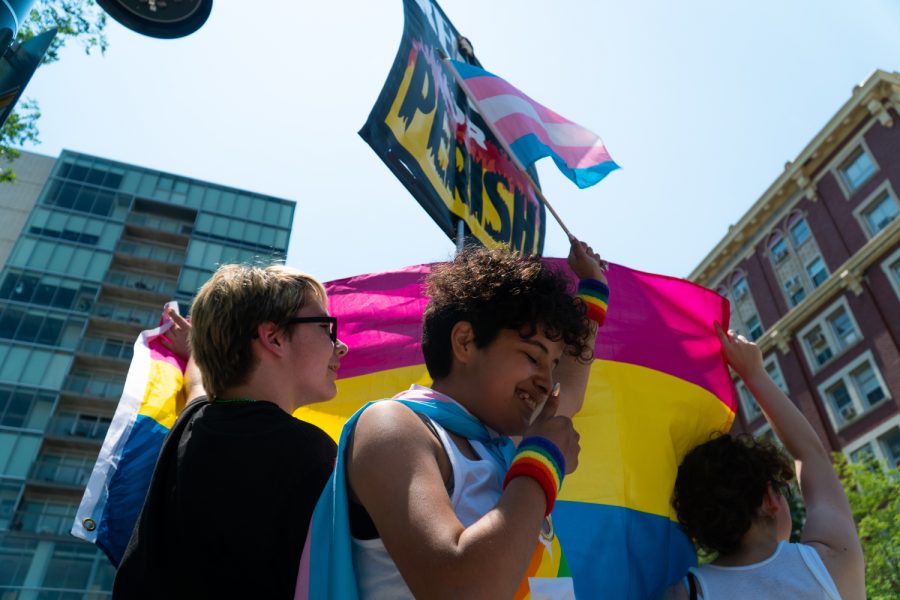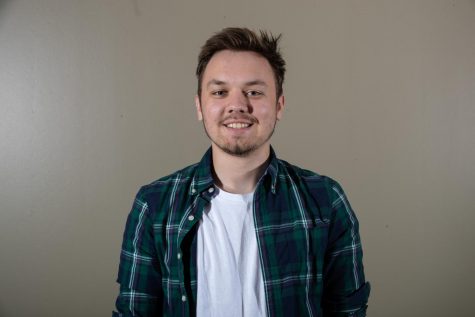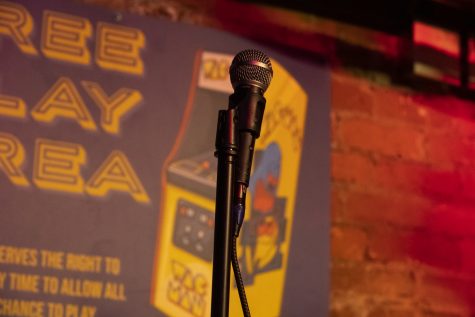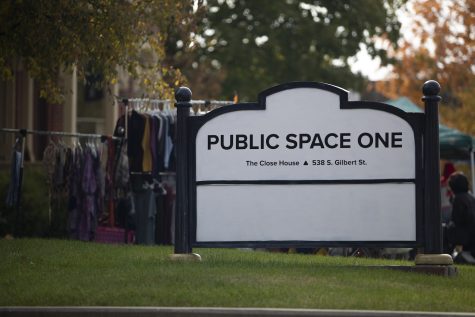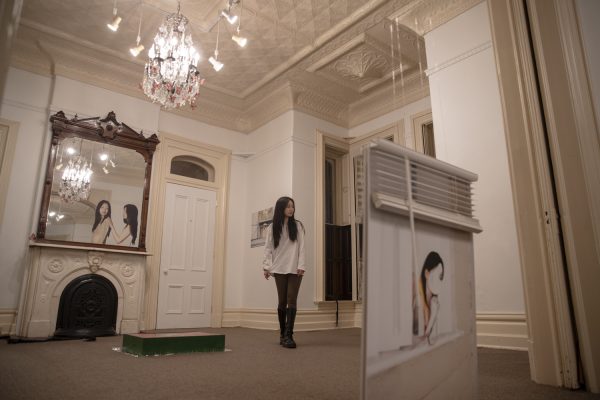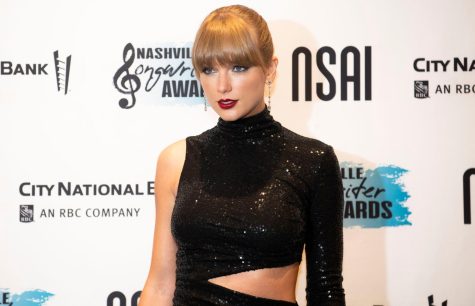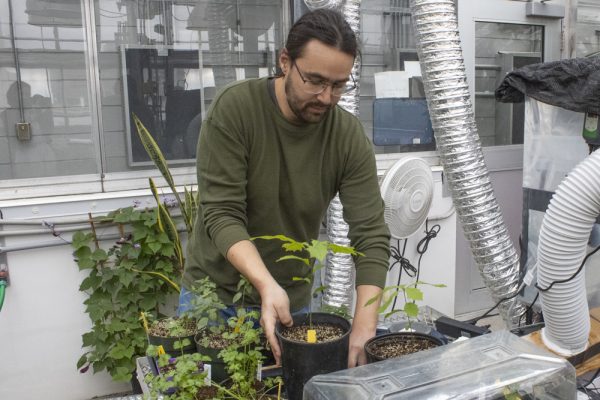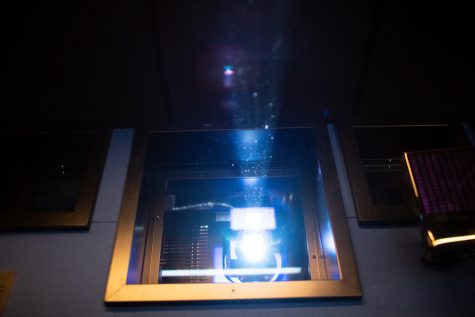Stonewall anniversary remains a beacon for IC Pride
The Stonewall uprising, which sparked a movement almost 50 years ago, serves as a reminder as people celebrate Pride today.
Iowa City had its 48th pride parade on Saturday June 16, 2018. (Roman Slabach/The Daily Iowan)
June 11, 2019
How are you remembering Stonewall?
It’s a question that has grown in popularity this month in preparation for the 50th anniversary of the Stonewall uprising that occurred June 28, 1969.
Many remember Stonewall as the event that jump-started the national movement for LGBTQ acceptance. The event that changed history began when New York City police raided the Stonewall Inn, located in a gay community in New York’s Greenwich Village.
The raid sparked riots between police and individuals who identified as gay, lesbian, and transgender — specifically, trans women of color — that lasted for six days in the Stonewall and surrounding streets. The uprising became a symbolic catalyst for the gay-rights movement worldwide.
“Those who were credited with standing up are people of color who were trans or drag queens,” said Christine Hawes, the community outreach and publicity chair for Iowa City Pride.
The Stonewall uprising provoked activism in Iowa City, specifically in the lesbian community on the University of Iowa campus, according to outhistory.org. The website works to establish LGBTQ chronologies.
In 1969, the Iowa City Women’s Liberation Front formed an organization to focus on such issues as child care, health care, gay rights, and publishing. A year later, the Liberation Front began to publish the newspaper Ain’t I a Women, which dealt with lesbian themes, and distribute it nationally.
RELATED: Wesley Center’s openly queer pastor to resign amid church tensions
News about the uprising spread across the nation and resulted in the creation of activist groups for LGBTQ rights. A year after the Stonewall uprising, the first Pride Fest was held in Iowa City, along with other cities.
In 1970, the Gay Liberation Front at the UI became the first gay student organization in the U.S. to be officially recognized by a major university. The front had a float in the Homecoming Parade and was recorded in the school yearbook.
This year’s Iowa City Pride Fest will honor the Stonewall uprising by paying tribute to all intersectional identities. Hawes said IC Pride has implemented a color panel to represent ethnic and gender diversity at the festival this year.
“We’re all trying to remember the history,” Hawes said. “It speaks to the concerns of not just gay, lesbian, and trans people but society’s outcasts.”
Hawes said Stonewall consisted of marginalized people, including the homeless and people of color, which drives home why there seems to be an effort in LGBTQ communities to be inclusive and intersectional.
“I think that the most important thing that we need to work on is the inclusiveness of everybody’s various intersectional identities and take into account the different experiences that everyone has,” UI student Shayn Walker said.
Walker, who majors in gender, women’s and sexuality studies, said that since the Stonewall uprising, people have become more accepting of members of the LGBTQ community. Although riots don’t need to occur for messages to be heard on UI campus, he said, there needs to be less focus on what’s been done so far and more emphasis on the inclusion of different identities of people in the LGBTQ community.
AJ King, the outgoing UI Trans Alliance president and UI Student Government LGBTQ constituency senator, said that overall, he has seen a definite improvement in cultural knowledge, awareness, and sensitivity to transgender populations for students on campus, but he would like to see more training for faculty and staff. There is still a ways to go for the community, King said.
“It’s so imperative to recognize where our roots came from,” he said. “Black trans women specifically are statistically more likely to be assaulted, murdered, and have an average lifespan of about 30 years with all the systematic violence that comes from being who they are.”



